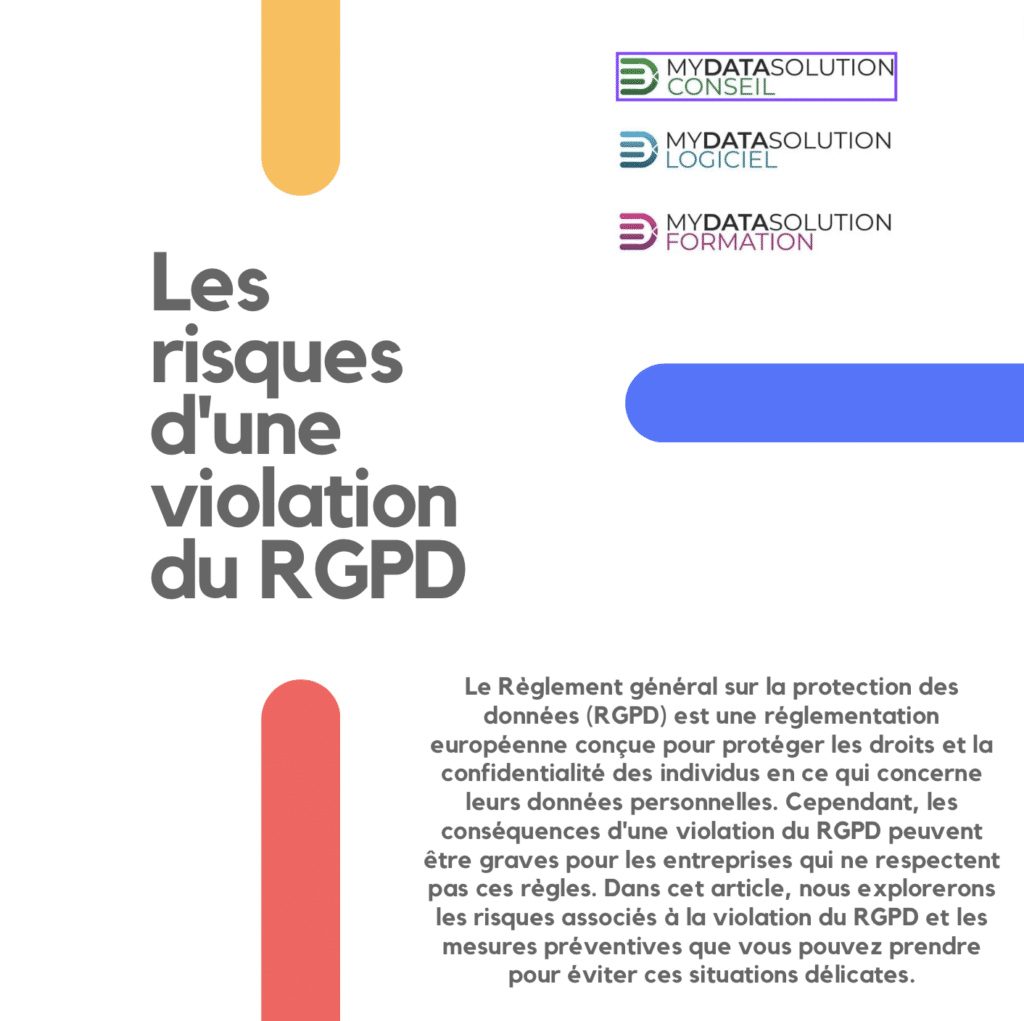The consequences of violating the RGPD
The consequences of breaching the RGPD: Risks and preventive measures
Visit General Data Protection Regulation (GDPR) is a European regulation designed to protect the rights and privacy of individuals with regard to their personal data. However, the consequences of breaching the RGPD can be severe for companies that fail to comply with these rules. In this article, we'll explore the risks associated with breaching the RGPD and the preventive measures you can take to avoid these tricky situations.
The risks of a breach of the RGPD
When a company does not comply with the provisions of the RGPD, it exposes itself to several risks and potential consequences :
High financial fines Data protection authorities have the power to impose fines of up to a significant percentage of a company's annual sales. These fines can be large enough to cause financial hardship and damage to the company's reputation.
Loss of customer confidence : RGPD breaches can damage the trust of customers, who may fear for the security of their personal data. A loss of trust can lead to lower sales, a tarnished reputation and reduced customer loyalty.
Litigation and legal action Litigation: People whose data has been breached can take legal action against the company responsible. Such litigation can not only result in additional costs, but also in negative publicity for the company.
Administrative sanctions and trade restrictions In addition to fines, data protection authorities can impose other administrative sanctions, such as suspending data processing activities or limiting international data transfers. These sanctions can hinder a company's business operations.
Preventive measures to avoid breaches of the RGPD
To avoid the adverse consequences of an RGPD breach, it's essential to take preventive measures to ensure compliance. Here are a few recommendations:
Establishing a culture of data protection : Make your employees aware of the importance of personal data protection and RGPD compliance. Put in place policies and regular training to ensure a clear understanding of everyone's responsibilities.
Carry out a Data Protection Impact Assessment (DPIA) : The SIA helps identify potential risks to data privacy and adopt appropriate measures to mitigate them. Conduct a regular SIA to ensure you comply with the principles of the GDPR.
Implement appropriate safety measures Make sure that your personal data is safely stored and protected against unauthorized access. This can include encrypting data, implementing firewalls, using strong passwords and restricting access to sensitive information.
Obtaining clear and specific consent Before collecting or processing personal data, make sure you obtain clear, free and specific consent from the individuals concerned. Inform them transparently about how their data will be used, and offer them the possibility of withdrawing their consent at any time.
Setting up a Data Protection Officer (DPO) : Designate a person responsible for ensuring RGPD compliance within your organization. The DPO can monitor data processing activities, answer questions from employees and customers, and ensure effective communication with data protection authorities.
To sum up
Violating the RGPD can have serious consequences for businesses, ranging from hefty financial fines to loss of customer trust and legal disputes. It's crucial to implement preventive measures to ensure RGPD compliance and avoid these risks. By following the recommendations mentioned in this article, you can strengthen personal data protection and preserve your company's reputation.






